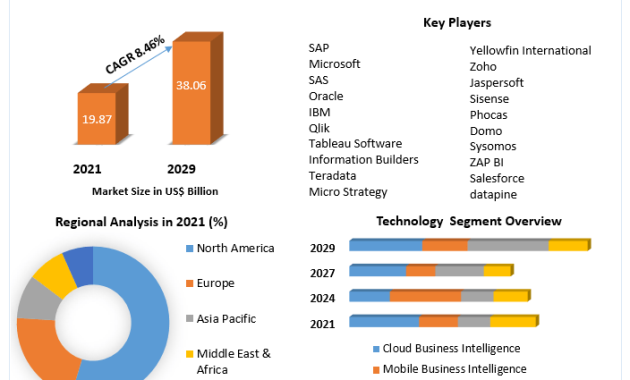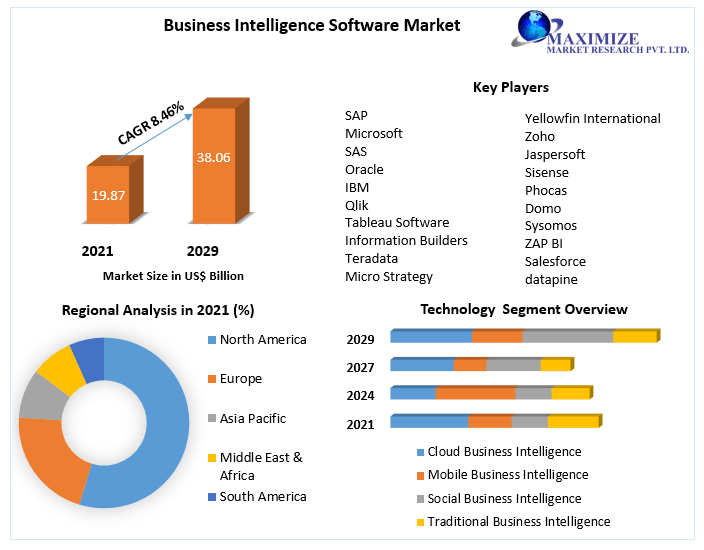
Business Intelligence Software That Powers Marketing Teams: A Deep Dive
In today’s data-driven landscape, marketing teams are under increasing pressure to demonstrate the return on investment (ROI) of their campaigns. This requires more than just intuition; it demands data-backed insights and strategic decision-making. This is where business intelligence software that powers marketing teams steps in, providing the tools and capabilities to transform raw data into actionable intelligence. This article delves into the world of business intelligence (BI) solutions specifically tailored for marketing, exploring their benefits, key features, and how they are revolutionizing the way marketing teams operate.
The shift toward data-driven marketing is not merely a trend; it is a necessity. Consumers are bombarded with marketing messages, and they are becoming increasingly adept at filtering out irrelevant content. To cut through the noise and resonate with the target audience, marketing teams must understand consumer behavior, preferences, and pain points. Business intelligence software that powers marketing teams empowers marketers to do just that, providing a 360-degree view of the customer and the effectiveness of their marketing efforts.
Understanding Business Intelligence in Marketing
Business intelligence, in its essence, is the process of collecting, analyzing, and interpreting data to gain insights and make informed decisions. In the context of marketing, BI involves:
- Collecting data from various sources, such as customer relationship management (CRM) systems, social media platforms, website analytics, and email marketing platforms.
- Analyzing the data to identify trends, patterns, and anomalies.
- Visualizing the data through dashboards, reports, and charts to make it easy to understand and share.
- Using the insights to optimize marketing campaigns, improve customer engagement, and increase ROI.
Business intelligence software that powers marketing teams provides the technological infrastructure to accomplish these tasks efficiently and effectively. It automates data collection, simplifies analysis, and provides user-friendly interfaces for marketers to access and interpret the information they need.
Key Features of Business Intelligence Software for Marketing
When evaluating business intelligence software that powers marketing teams, several key features are essential. These features enable marketers to gain a comprehensive understanding of their campaigns and make data-driven decisions.
Data Integration and Connectivity
A robust BI solution should be able to integrate data from various sources seamlessly. This includes CRM systems (like Salesforce or HubSpot), marketing automation platforms (like Marketo or Pardot), social media channels (Facebook, Instagram, Twitter, LinkedIn), website analytics tools (Google Analytics), and email marketing platforms (Mailchimp, Constant Contact). The ability to connect to these diverse data sources and consolidate the information is crucial for a holistic view.
Data Visualization and Reporting
Raw data is often difficult to interpret. Effective business intelligence software that powers marketing teams provides powerful data visualization tools, such as dashboards, charts, and graphs. These visualizations make it easy to identify trends, track key performance indicators (KPIs), and share insights with stakeholders. Customizable reports allow marketers to focus on the metrics that matter most to their specific goals.
Advanced Analytics and Predictive Modeling
Beyond basic reporting, advanced analytics capabilities are essential for gaining a competitive edge. This includes features like:
- Predictive analytics: Forecasting future trends and customer behavior based on historical data.
- Cohort analysis: Analyzing the behavior of specific groups of customers over time.
- Segmentation: Grouping customers based on shared characteristics to personalize marketing messages.
- Sentiment analysis: Gauging customer sentiment towards a brand or product based on social media and other feedback.
Automation and Workflow Management
Business intelligence software that powers marketing teams often includes automation features to streamline data collection, reporting, and analysis. This saves time and reduces the risk of human error. Workflow management capabilities allow marketers to create and manage automated processes, such as sending automated reports or triggering alerts when key metrics change.
User-Friendly Interface and Accessibility
The best business intelligence software that powers marketing teams is easy to use, even for marketers who are not data scientists. Intuitive interfaces, drag-and-drop functionality, and pre-built templates make it simple to create reports and dashboards. Mobile accessibility is also important, allowing marketers to access data and insights from anywhere, at any time.
Benefits of Using Business Intelligence Software for Marketing Teams
Implementing business intelligence software that powers marketing teams offers a wealth of benefits, transforming how marketing teams operate and achieve their goals.
Improved ROI and Campaign Performance
By providing data-driven insights, BI software helps marketers optimize their campaigns for maximum ROI. Marketers can identify which channels, messages, and strategies are most effective and allocate resources accordingly. This leads to increased conversions, higher customer engagement, and ultimately, a better return on investment.
Enhanced Customer Understanding
BI software allows marketers to gain a deeper understanding of their customers. By analyzing customer data, marketers can identify their target audience, understand their needs and preferences, and personalize marketing messages. This leads to improved customer satisfaction and loyalty.
Data-Driven Decision Making
Instead of relying on guesswork or intuition, marketing teams can make data-driven decisions based on concrete evidence. This reduces the risk of making costly mistakes and increases the likelihood of success. BI software provides the insights needed to make informed decisions about campaign strategy, budget allocation, and resource allocation.
Increased Efficiency and Productivity
Automating data collection, reporting, and analysis frees up marketers to focus on more strategic tasks. This increases efficiency and productivity, allowing marketing teams to do more with less. BI software streamlines the entire marketing process, from data collection to reporting.
Competitive Advantage
In today’s competitive market, businesses that leverage data effectively gain a significant advantage. Business intelligence software that powers marketing teams allows marketers to identify trends, anticipate customer needs, and adapt their strategies quickly. This helps them stay ahead of the competition and achieve their business goals.
Choosing the Right Business Intelligence Software
Selecting the right business intelligence software that powers marketing teams requires careful consideration. Here are some factors to consider:
- Data integration capabilities: Ensure the software can connect to all your relevant data sources.
- Ease of use: Choose a solution with an intuitive interface and user-friendly features.
- Reporting and visualization capabilities: Look for powerful tools to create insightful reports and dashboards.
- Advanced analytics features: Consider the need for predictive analytics, cohort analysis, and other advanced features.
- Scalability: Choose a solution that can grow with your business.
- Cost: Compare pricing models and choose a solution that fits your budget.
- Vendor reputation and support: Research the vendor’s reputation and ensure they offer adequate support.
Examples of Business Intelligence Software for Marketing
Several business intelligence software that powers marketing teams are available in the market. Here are a few examples:
- Tableau: A popular BI platform known for its powerful data visualization capabilities.
- Power BI: Microsoft’s BI solution, offering a wide range of features and integrations.
- Looker: A data analytics platform focused on collaborative data exploration and business intelligence.
- HubSpot: Provides a suite of marketing, sales, and customer service tools, including BI features.
- Google Data Studio: A free data visualization tool that integrates with various data sources.
Conclusion: The Future of Marketing is Data-Driven
Business intelligence software that powers marketing teams is no longer a luxury; it is a necessity for success in the modern marketing landscape. By leveraging the power of data, marketing teams can gain a deeper understanding of their customers, optimize their campaigns, and achieve a better ROI. As data continues to grow in volume and complexity, the importance of BI software will only increase. Embracing these tools will enable marketing teams to stay ahead of the curve and drive business growth.
The future of marketing is data-driven. Investing in business intelligence software that powers marketing teams is an investment in the future of your business.
Business intelligence software that powers marketing teams is crucial.
[See also: The Role of AI in Modern Marketing, Data-Driven Marketing Strategies for 2024, How to Measure Marketing ROI Effectively]

